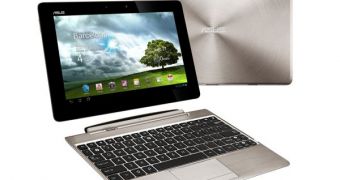The International Data Corporation (IDC) has found that sales of tablets haven't being doing as well as everyone expected during the past two quarters.
Among successful product types, tablets rode their initial momentum for one of the longest times, namely two years, give or take. That momentum is finally winding down though, according to analyst findings.
Back in the fourth quarter of 2011, about 28.2 million slates were sold, partly because of the holiday season and partly due to the fact that Android-powered slates only became a strong presence that year.
Alas, Android is turning out to be somewhat less popular than all the articles on the media would have one believe.
Meanwhile, Apple's iPads sold well, but not enough to offset the decrease in tablets loaded with Google's mobile OS.
Thus, rather than exhibiting the expected decline of 34%, the first quarter of 2012 saw overall slate shipments lower by 38.4%.
That left the shipment figure at 17.4 million units, 11.8 million of which were Apple iPads.
On the bright side, the amount of sold tablets over the first three months of the year was much higher compared to the same period of 2011, when only 7.9 million got sent out.
Besides weak Android tablet sales, Microsoft's Windows 8 operating system may have slightly contributed to the result. After all, there must be at least a few people willing to hold off on buying a slate until the OS is released later this year.
That said, when Microsoft does launch its new software platform, the slate market's momentum will be rekindled, or so everyone seems to believe. A model from HP has already been spotted.
For those who want some background info, Apple's iPad was the first media tablet to truly break the ice and pave a road forward. Tablets had been released before, but only health care and a few niche markets used them.
It helped that touch-based input and power efficiency techniques had evolved enough to make the product type viable. Alas, that was not enough to grant much success to rival tablets for a while, as the only operating systems available at the time were unsuited (Windows XP/7) or just couldn't rival the content / apps available for the iPad (Android).
It didn't help that Google's Android OS and the ill-fated webOS were good for phones but unruly for larger screens. Only after Android 3.0 appeared, in February 2011, and then Android 3.0, in October, did Acer, ASUS, Toshiba, Samsung, Motorola and other phone and laptop makers start to really gain customers.
The only big event after that was Microsoft's decision to implement ARM support in its next OS. Once Windows 8 comes out, Android's apparently diminishing reach won't be such a big issue anymore.

 14 DAY TRIAL //
14 DAY TRIAL //